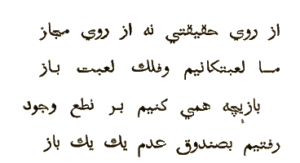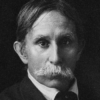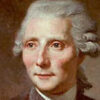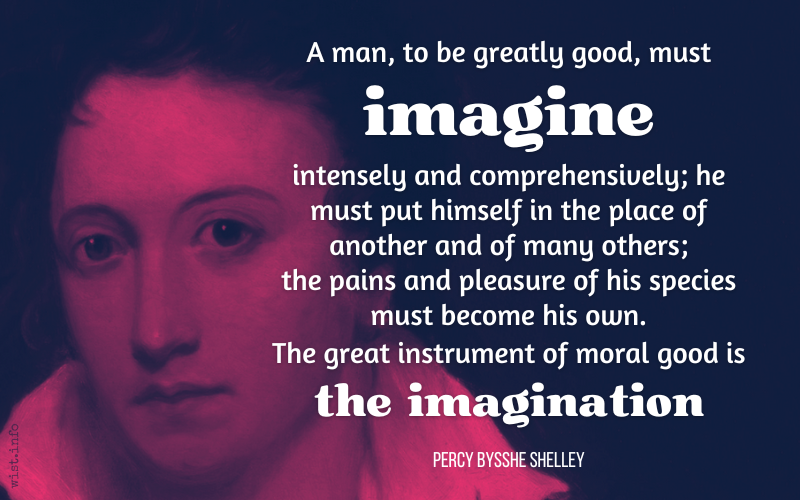It is so hard for us little human beings to accept this deal that we get. It’s really crazy, isn’t it? We get to live, then we have to die. What we put into every moment is all we have.
Quotations about:
human condition
Note not all quotations have been tagged, so Search may find additional quotes on this topic.
When one is past, another care we have:
Thus woe succeeds a woe, as wave a wave.
Nor need we be surprised that men so often embrace almost any doctrines, if they are proclaimed with a voice of absolute assurance. In a universe that we do not understand, but with which we must in one way or another somehow manage to deal; and aware of the conflicting desires that clamorously beset us, between which we must choose, and which we must therefore manage to weigh, we turn in our bewilderment to those who tell us that they have found a path out of the thickets and possess the scales by which to appraise our needs. Over and over again such prophets succeed in converting us to unquestioning acceptance; there is scarcely a monstrous belief that has not had its day and its passionate adherents, so eager are we for safe footholds in our dubious course.
Learned Hand (1872-1961) American jurist
Speech (1955-01-29), “A Fanfare for Prometheus,” American Jewish Committee annual dinner, New York City
(Source)
‘Tis all a Chequer-board of Nights and Days
Where Destiny with Men for Pieces plays:
Hither and thither moves, and mates, and slays,
And one by one back in the Closet lays.
Omar Khayyám (1048-1123) Persian poet, mathematician, philosopher, astronomer [عمر خیام]
Rubáiyát [رباعیات], Bod. # 94 [tr. FitzGerald, 1st ed. (1859), # 49]
(Source)
Alternate translations:
In the view of reality, not of illusion,
We mortals are chess-men and fate is the player;
We each act our game on the board of life,
And then one by one are swept into the box!
[tr. Cowell (1858), # 27]
Impotent Pieces of the Game He plays
Upon this Chequer-board of Nights and Days;
Hither and thither moves, and checks, and slays;
And one by one back in the Closet lays.
[tr. FitzGerald, 2nd ed. (1868), # 74, and 3rd ed. (1872) # 69]
But helpless Pieces of the Game He plays
Upon this Chequer-board of Nights and Days;
Hither and thither moves, and checks, and slays,
And one by one back in the Closet lays.
[tr. FitzGerald, 4th ed. (1879), # 49, and 5th ed. (1889), # 49]
Here, below, we are naught but puppets tor the diversion of the wheel of the heavens. This is indeed a truth, and no simile. We truly are but pieces on this chessboard of humanity, which in the end we leave, only to enter, one by one, into the grave of nothingness.
[tr. McCarthy (1879), # 61]
We are but chessmen, who to move are fain,
Just as the great Chessplayer doth ordain.
It moves us on life's chess-board to and fro,
And then in death's box shuts us up again.
[tr. Whinfield (1882), # 148]
We are but chessmen, destined, it is plain,
That great chess player, Heaven, to entertain;
It moves us on life's chess-board to and fro,
And then in death's box shuts up again.
[tr. Whinfield (1883), # 270]
We are all Puppets of the Sky, we run
As wills the Player till the Game is done,
And when The Player wearies of the Sport,
He throws us into Darkness One by One.
[tr. Garner (1887), 4.2]
But puppets are we in Fate's puppet-show --
No figure of speech is this, but in truth 't is so!
On the draughtboard of Life we are shuffled to and fro,
Then one by one to the box of Nothing go!
[tr. M. K. (1888)]
HERE, BELOW, WE ARE NAUGHT BUT
PUPPETS FOR THE DIVERSION OF THE
WHEEL OF THE HEAVENS. THIS IS
INDEED A TRUTH, AND NO SIMILE.
WE TRULY ARE BUT PIECES ON
THIS CHESSBOARD OF HUMANITY,
WHICH IN THE END WE LEAVE, ONLY
TO ENTER, ONE BY ONE, INTO THE
GRAVE OF NOTHINGNESS.
[tr. McCarthy (1889)]
Upon this checkerboard of joys and woes
The wretched puppet hither and thither goes,
Until the mighty Player of the skies
His plaything back in the casket throws.
[tr. Garner (1898), # 82]
We're the pieces Heaven moves on the chessboard of space
(No metaphor this, but the truth of the case);
Each awhile on Life's board plays his game and returns
In the box of nonentity back to his place.
[tr. Payne (1898), # 480]
To speak plain language, and not in parables,
we are the pieces and heaven plays the game,
we are played together in a baby-game upon the chessboard of existence,
and one by one we return to the box of non-existence.
[tr. Heron-Allen (1898), # 94]
'Tis not a fancy of disordered brains
But certain truth, that on life's checkered square
We men are puppets, whose steps God ordains;
The time is short in which we dally there,
Then in death's casket one by one we fall,
The game is played and earth must cover all.
[tr. Cadell (1899), # 108]
Like helpless chessmen on the checkered blocks,
We 're hither, thither moved, till Heaven knocks
The luckless pieces from the crowded board,
And one by one returns them to the box.
[tr. Roe (1906), # 53]
In truth and not by way of simile.
Heaven plays the game and its mere puppets we;
In sport moved on Life's chess-board, one by one
We reach the chess-box of Nonentity!
[tr. Thompson (1906), # 317]
To speak plain language, parable to shame,
We are the pieces, Heaven plays the game:
A childish game upon the board of Life,
Then back into the Box from whence we came.
[tr. Talbot (1908), # 94]
To speak the truth and not as a metaphor, we are
the pieces of the game and Heaven the player.
We play a little game on the chessboard of existence.
Then we go back to the box of non-existence, one by one.
[tr. Christensen (1927), # 6]
This is not an allegory, it is reality:
We are the figures and the Sphere is the player.
We act a play on the boards of existence
And we go back into the box of non-existence one by one.
[tr. Rosen (1928), # 168]
We puppets dance to tunes of Time we know,
We are puppets in fact, and not for show;
Existence is the carpet where we dance,
So one by one where aught is naught we go.
[tr. Tirtha (1941), # 2.6]
Let me speak out, unallegorically:
We are mere puppets of our Master, toys.
On the Table of Existence, one by one.
Flung back in the toy box of Non-existence.
[tr. Graves & Ali-Shah (1967), # 73]
We are but chessmen in God’s scheme of things:
The most are merely pawns, a few are kings;
And when our unimportant game is done
Back in the box we tumble one by one.
[tr. Bowen (1976), # 44]
We are the puppets and fate the puppeteer
This is not a metaphor, but a truth sincere
On this stage, fate for sometime our moves steer
Into the chest of non-existence, one by one disappear.
[tr. Shahriari (1998), literal]
The hands of fate play our game
We the players are given a name
Some are tame, others gain fame
Yet in the end, we’re all the same.
[tr. Shahriari (1998), figurative]
What if thou be saint or sinner,
Crooked gray-beard, straight beginner, —
Empty paunch, or jolly dinner,
When Death thee shall call.
All alike are rich and richer,
King with crown, and cross-legged stitcher,
When the grave hides all.Richard Watson Gilder (1844-1909) American poet and editor
“Drinking Song,” st. 2, Lyrics, and Other Poems (1885)
(Source)
Man seems to be a rickety poor sort of a thing, any way you take him; a kind of British Museum of infirmities and inferiorities. He is always undergoing repairs. A machine that was as unreliable as he is would have no market.
Mark Twain (1835-1910) American writer [pseud. of Samuel Clemens]
Letters from the Earth, “The Damned Human Race,” sec. 5 “The Lowest Animal” (1962) [ed. DeVoto]
(Source)
The central task of education is to implant a will and facility for learning; it should produce not learned but learning people. The truly human society is a learning society, where grandparents, parents, and children are students together.
Eric Hoffer (1902-1983) American writer, philosopher, longshoreman
Reflections on the Human Condition, ch. 1, # 32 (1973)
(Source)
In order to not find life unbearable, you must accept two things: the ravages of time, and the injustices of man.
[Il y a deux choses auxquelles il faut se faire, sous peine de trouver la vie insupportable. Ce sont les injures du tems et les injustices des hommes.]Nicolas Chamfort (1741-1794) French writer, epigrammist (b. Nicolas-Sébastien Roch)
Products of Perfected Civilization [Produits de la Civilisation Perfectionée], Part 1 “Maxims and Thoughts [Maximes et Pensées],” ch. 2, ¶ 115 (1795) [tr. Parmée (2003), ¶ 95]
(Source)
(Source (French)). Alternate translations:
There are two things to which we must become inured on pain of finding life intolerable: the outrages of time and man's injustice.
[tr. Mathers (1926)]
There are two things that one must get used to or one will find life unendurable: the damages of time and the injustices of men.
[tr. Merwin (1969)]
There are two things that a man must reconcile himself to, or he will find life unbearable: they are the injuries of time and the injuries of men.
[tr. Siniscalchi (1994)]
CAMILLO:My gracious lord,
I may be negligent, foolish, and fearful.
In every one of these no man is free,
But that his negligence, his folly, fear,
Among the infinite doings of the world,
Sometime puts forth. In your affairs, my lord,
If ever I were willful-negligent,
It was my folly; if industriously
I played the fool, it was my negligence,
Not weighing well the end; if ever fearful
To do a thing where I the issue doubted,
Whereof the execution did cry out
Against the non-performance, ’twas a fear
Which oft infects the wisest. These, my lord,
Are such allowed infirmities that honesty
Is never free of.William Shakespeare (1564-1616) English dramatist and poet
Winter’s Tale, Act 1, sc. 2, l. 310ff (1.2.310-325) (1611)
(Source)
Life is like arriving late for a movie, having to figure out what was going on without bothering everybody with a lot of questions, and then being unexpectedly called away before you find out how it ends.
Joseph Campbell (1904-1987) American writer, professor of literature
(Attributed)
No man lives without jostling and being jostled; in all ways he has to elbow himself through the world, giving and receiving offense.
Thomas Carlyle (1795-1881) Scottish essayist and historian
“Sir Walter Scott,” London and Westminster Review No. 12 and 55, Art. 2 (1838-01)
(Source)
A review of Scott's Memoirs of the Life of Sir Walter Scott, Baronet, Vols. 1-6 (1837). Reprinted in Carlyle, Critical and Miscellaneous Essays (1827-1855).
LEAR: When we are born, we cry that we are come
To this great stage of fools.William Shakespeare (1564-1616) English dramatist and poet
King Lear, Act 4, sc. 6, l. 200ff (4.6.200-201) (1606)
(Source)
And Man in portions can foresee
His own funereal destiny;
His wretchedness, and his resistance,
And his sad unallied existence:
To which his Spirit may oppose
Itself — and equal to all woes,
And a firm will, and a deep sense,
Which even in torture can decry
Its own concenter’d recompense,
Triumphant where it dares defy,
And making Death a Victory.
In life, as in restaurants, we swallow a lot of indigestible stuff just because it comes with the dinner.
Mignon McLaughlin (1913-1983) American journalist and author
The Neurotic’s Notebook, ch. 5 (1963)
(Source)
O foolish creatures,
what great ignorance besets you![Oh creature sciocche,
quanta ignoranza è quella che v’offende!]Dante Alighieri (1265-1321) Italian poet
The Divine Comedy [Divina Commedia], Book 1 “Inferno,” Canto 7, l. 70ff (7.70-71) [Virgil] (1309) [tr. Hollander/Hollander (2007)]
(Source)
Virgil lambasting humanity for not understanding the God-ordained role of Fortune. (Source (Italian)). Alternate translations:
O Mortals without sense,
How great's the Ignorance that you possess!
[tr. Rogers (1782)]
O beings blind! what ignorance
Besets you?
[tr. Cary (1814)]
Ah! sottish creature-tribe!
What scandals doth your ignorance beteem!
[tr. Dayman (1843)]
O foolish creatures, how great is this ignorance that falls upon ye!
[tr. Carlyle (1849)]
Oh! foolish creature! to be blind
What ignorance is that attacks your mind?
[tr. Bannerman (1850)]
Oh, creatures weak and blind,
How ye are hinder'd by your ignorance!
[tr. Johnston (1867)]
O creatures imbecile,
What ignorance is this which doth beset you?
[tr. Longfellow (1867)]
O foolish creatures, how great ignorance is that which makes you trip!
[tr. Butler (1885)]
O creatures dull to see,
What ignorance is this that here offends!
[tr. Minchin (1885)]
O creatures foolish, how great is that ignorance that harms you!
[tr. Norton (1892)]
Besotted race, how deep the ignorance that harasseth you!
[tr. Sullivan (1893)]
O ye insipid creatures.
How great the ignorance which doth oppress
you. [tr. Griffith (1908)]
O foolish creatures, what ignorance is this that besets you!
[tr. Sinclair (1939)]
How heavy the ignorance,
O foolish creatures, that on you is laid.
[tr. Binyon (1943)]
Ah, witless world! Behold the grand
Folly of ignorance!
[tr. Sayers (1949)]
O credulous mankind,
is there one error that has wooed and lost you?
[tr. Ciardi (1954)]
O foolish creatures, how great is the ignorance that besets you!
[tr. Singleton (1970)]
Oh foolish race of man,
how overwhelming is your ignorance!
[tr. Musa (1971)]
O unenlightened creatures,
how deep -- the ignorance that hampers you!
[tr. Mandelbaum (1980)]
How foolish people are!
How great is the ignorance which strikes them down!
[tr. Sisson (1981)]
Foolish creatures,
How great an ignorance plagues you.
[tr. Pinsky (1994), ll. 62-63]
O foolish creatures, how great is the ignorance that injures you!
[tr. Durling (1996)]
O, blind creatures, how great is the ignorance that surrounds you!
[tr. Kline (2002)]
You idiotic creatures,
so greatly hurt by your own ignorance!
[tr. Kirkpatrick (2006)]
O men of foolish minds!
How limited you are, how ignorant!
[tr. Raffel (2010)]
Half-witted mortals, how is it you know
So little even of the ignorance
That starves you?
[tr. James (2013), ll. 66-68]
I hasten to laugh at everything, lest I should have to weep at everything.
[Je me presse de rire de tout, de peur d’être obligé d’en pleurer.]
Pierre Beaumarchais (1732-1799) French playwright, polymath [Pierre-Augustin Caron de Beaumarchais]
The Barber of Seville [Le Barbier de Séville], Act 1, sc. 2 [Figaro] (1773) [tr. 1896]
(Source)
(Source (French)). Alternate translations:
I make haste to laugh at everything for fear of being obliged to weep.
[Motto for the London Figaro (1871)]
I am eager to laugh at all for fear of being obliged to weep.
[Source (1887)]
I hasten to laugh at everything for fear that otherwise I might be forced to weep over it.
[tr. Taylor (1922)]
I force myself to laugh at everything for fear of being forced to weep at it.
[tr. Bermel (1960)]
I forced myself to laugh at everything for fear of having to weep.
[tr. Wood (1964)]
I always hasten to laugh at everything for fear that I may be obliged to weep.
[tr. Luciani (1964)]]
I make a point of laughing at everything, for fear of having to cry.
[tr. Anderson (1993)]
I make a point of laughing at life, because otherwise I'm afraid it would make me weep.
[tr. Coward (2003)]
I quickly laugh at everything, for fear of having to cry.
[Bartlett's]
And endless other variations ("I force myself to laugh at everything, for fear of having to cry") in one-off passages.
Sometimes given, in French, as "Je me hâte de me moquer de tout, de peur d'être obligé d'en pleurer."
Compare to Byron (1820).
All we hear is “What’s the matter with the country?” “What’s the matter with the world?” There ain’t but one thing wrong with every one of us in the world, and that’s selfishness.
In the end, I saw Superman not as a superhero or even a science fiction character, but as a story of Everyman. We’re all Superman in our own adventures. We have our own Fortresses of Solitude we retreat to, with our own special collections of valued stuff, our own super-pets, our own Bottle Cities that we feel guilty for neglecting. We have our own peers and rivals and bizarre emotional or moral tangles to deal with.
Grant Morrison (b. 1960) Scottish comic book writer and playwright
“All Star Memories: Grant Morrison on All Star Superman, Part 1,” Interview with Zack Smith, Newsarama.com (21 Oct 2008)
(Source)
The problem of drugs, of divorce, of race prejudice, of unmarried pregnancy, and so on — as if evil were a problem, something that an be solved, that has an answer, like a problem in fifth grade arithmetic. If you want the answer, you just look in the back of the book. That is escapism, that posing evil as a “problem,” instead of what it is: all the pain and suffering and waste and loss and injustice we will meet our loves long, and must face and cope with over and over and over, and admit, and live with, in order to live human lives at all.
Ursula K. Le Guin (1929-2018) American writer
“The Child and the Shadow,” Quarterly Journal of the Library of Congress (Apr 1975)
(Source)
On the difficulty of "realistic fiction" for children to teach morality. First delivered as a speech; later reprinted in The Language of the Night (1979).
Whoever increases the sum of human joy, is a worshipper.
He who adds to the sum of human misery, is a blasphemer.
Robert Green Ingersoll (1833-1899) American lawyer, agnostic, orator
Speech to the Jury, Trial of C. B. Reynolds for Blasphemy, Morristown, New Jersey (May 1887)
(Source)
Among other things I think humor is a shield, a weapon, a survival kit. Not only has this brief span of ours been threatened by such perils not of our making such as fire and flood, Tyrannosaurus Rex, the black death, and hurricanes named after chorus girls, but we have been most ingenious in devising means for destroying each other, a habit we haven’t yet learned how to kick.
So here we are several billion of us, crowded into our global concentration camp for the duration. How are we to survive? Solemnity is not the answer, any more than witless and irresponsible frivolity is. I think our best chance lies in humor, which in this case means a wry acceptance of our predicament. We don’t have to like it but we can at least recognize its ridiculous aspects, one of which is ourselves.
Ogden Nash (1902-1971) American poet
Commencement address at his daughter Linell’s boarding school
(Source)
Quoted in Douglas M. Parker, Dana Giaoia, Ogden Nash: The Life and Work of America's Laureate of Light (2005).
There are three things which are real: God, human folly, and laughter. Since the first two pass our comprehension, we must do what we can with the third.
Aubrey Menen (1912-1989) British writer, novelist, satirist, theatre critic
Rama Retold, Book 3, ch. 7 [Valmiki] (1954)
(Source)
This book is a modern retelling of part of the Ramayana.
A variant of this was inscribed on a silver beer mug given on a gift that President John F Kennedy gave to David Powers:
There are three things which are real:
God, human folly and laughter.
The first two are beyond our comprehension
So we must do what we can with the third.
There is no such thing as inner peace. There is only nervousness or death.
Among other things, you’ll find that you’re not the first person who was ever confused and frightened and even sickened by human behavior. You’re by no means alone on that score, you’ll be excited and stimulated to know. Many, many men have been just as troubled morally and spiritually as you are right now. Happily, some of them kept records of their troubles. You’ll learn from them — if you want to. Just as someday, if you have something to offer, someone will learn something from you. It’s a beautiful reciprocal arrangement. And it isn’t education. It’s history. It’s poetry.
A man, to be greatly good, must imagine intensely and comprehensively; he must put himself in the place of another and of many others; the pains and pleasure of his species must become his own. The great instrument of moral good is the imagination; and poetry administers to the effect by acting upon the cause.
For at least two thirds of our miseries spring from human stupidity, human malice, and those great motivators and justifiers of malice and stupidity, idealism, dogmatism, and proselytizing zeal on behalf of religious or political idols.
Aldous Huxley (1894-1963) English novelist, essayist and critic
“Knowledge and Understanding,” Vedanta and the West (May-Jun 1956)
(Source)
Revision of a 1955 lecture given at the Vedanta Society of Southern California; this phrase, however, does not occur in it (the surrounding text is found around the 10:00 mark). Reprinted in Adonis and the Alphabet, and Other Essays (in the US Tomorrow and Tomorrow and Tomorrow, and Other Essays) (1956).
It is in our faults and failings, not in our virtues, that we touch one another and find sympathy. We differ widely enough in our nobler qualities. It is in our follies that we are at one.
Jerome K. Jerome (1859-1927) English writer, humorist [Jerome Klapka Jerome]
Idle Thoughts of an Idle Fellow, “On Vanity and Vanities” (1886)
(Source)
We for a certainty are not the first
Have sat in taverns while the tempest hurled
Their hopeful plans to emptiness, and cursed
Whatever brute and blackguard made the world.A. E. Housman (1859-1936) English scholar and poet [Alfred Edward Housman]
“The Chestnut Casts His Flambeaux and the Flowers,” st. 3, Last Poems, # 9 (1922)
(Source)
Whatsoever therefore is consequent to a time of Warre, where every man is Enemy to every man; the same is consequent to the time, wherein men live without other security, than what their own strength, and their own invention shall furnish them withall. In such condition, there is no place for Industry; because the fruit thereof is uncertain; and consequently no Culture of the Earth; no Navigation, nor use of the commodities that may be imported by Sea; no commodious Building; no Instruments of moving, and removing such things as require much force; no Knowledge of the face of the Earth; no account of Time; no Arts; no Letters; no Society; and which is worst of all, continuall feare, and danger of violent death; And the life of man, solitary, poore, nasty, brutish, and short.
“You’re fucked up, Mister. But you’re cool.”
“I believe that’s what they call the human condition,” said Shadow.Neil Gaiman (b. 1960) British author, screenwriter, fabulist
American Gods, Part 1, ch. 7 [Sam and Shadow] (2001)
(Source)
DUKE SENIOR: Thou seest we are not all alone unhappy.
This wide and universal theater
Presents more woeful pageants than the scene
Wherein we play in.William Shakespeare (1564-1616) English dramatist and poet
As You Like It, Act 2, sc. 7, l. 142ff (2.7.142-145) (1599)
(Source)
It is justice, not charity, that is wanting in the world!
Mary Wollstonecraft (1759-1797) English social philosopher, feminist, writer
A Vindication of the Rights of Women, ch. 4 (1792)
(Source)
This world is a comedy to those that think; a tragedy to those that feel.
Horace Walpole (1717-1797) English novelist, letter writer
Letter to Anne, Countess of Upper Ossory (16 Aug 1776)
(Source)
Walpole frequently used used this phrase or variants in letters (and in fact prefaces this quote with "I have often said ..."). Another example is an earlier letter to Horace Mann (31 Dec 1769):
I have often said, and oftener think, that this world is a comedy to those that think, a tragedy to those that feel -- a solution of why Democritus laughed and Heraclitus wept.
It may be derived from an (unsourced) similar quote attributed Jean de La Bruyère: "Life is a tragedy for those who feel, and a comedy for those who think".
There are also conflicts about important things or ideas. In such cases I am more impressed by the extreme importance of being on the right side, than I am disturbed by the revelation of the jungle of confused motives, private purposes, and individual actions (noble or base) in which the right and the wrong in actual human conflicts are commonly involved.
J.R.R. Tolkien (1892-1973) English writer, fabulist, philologist, academic [John Ronald Reuel Tolkien]
Notes on W. H. Auden’s review of Return of the King (1956)
(Source)
Auden's review: "At the End of the Quest, Victory," New York Times Book Review (1956-01-22).
Tolkien never sent or shared these notes. Reprinted in Humphrey Carpenter, ed., The Letters of J.R.R. Tolkien, #183 (1981).




































